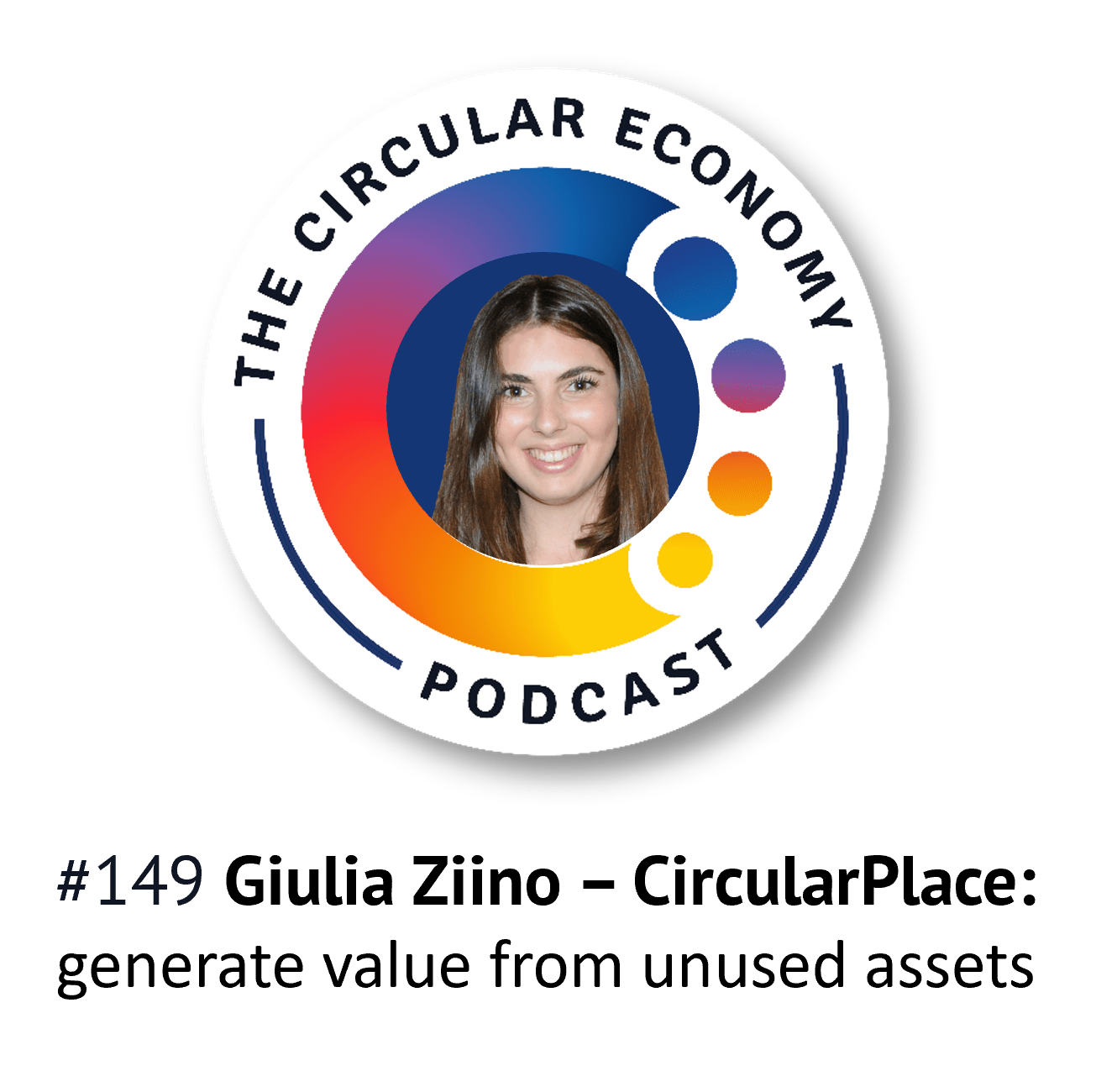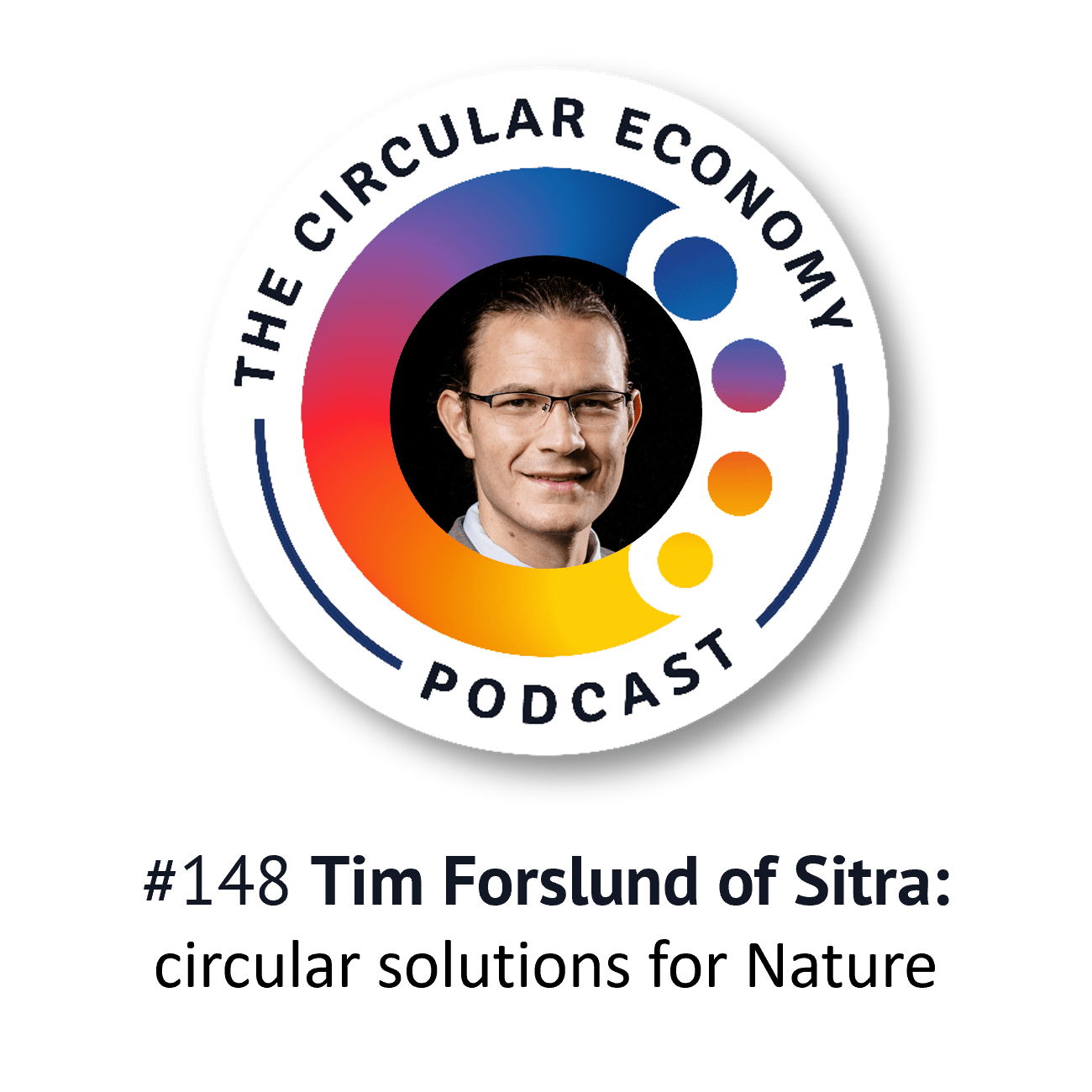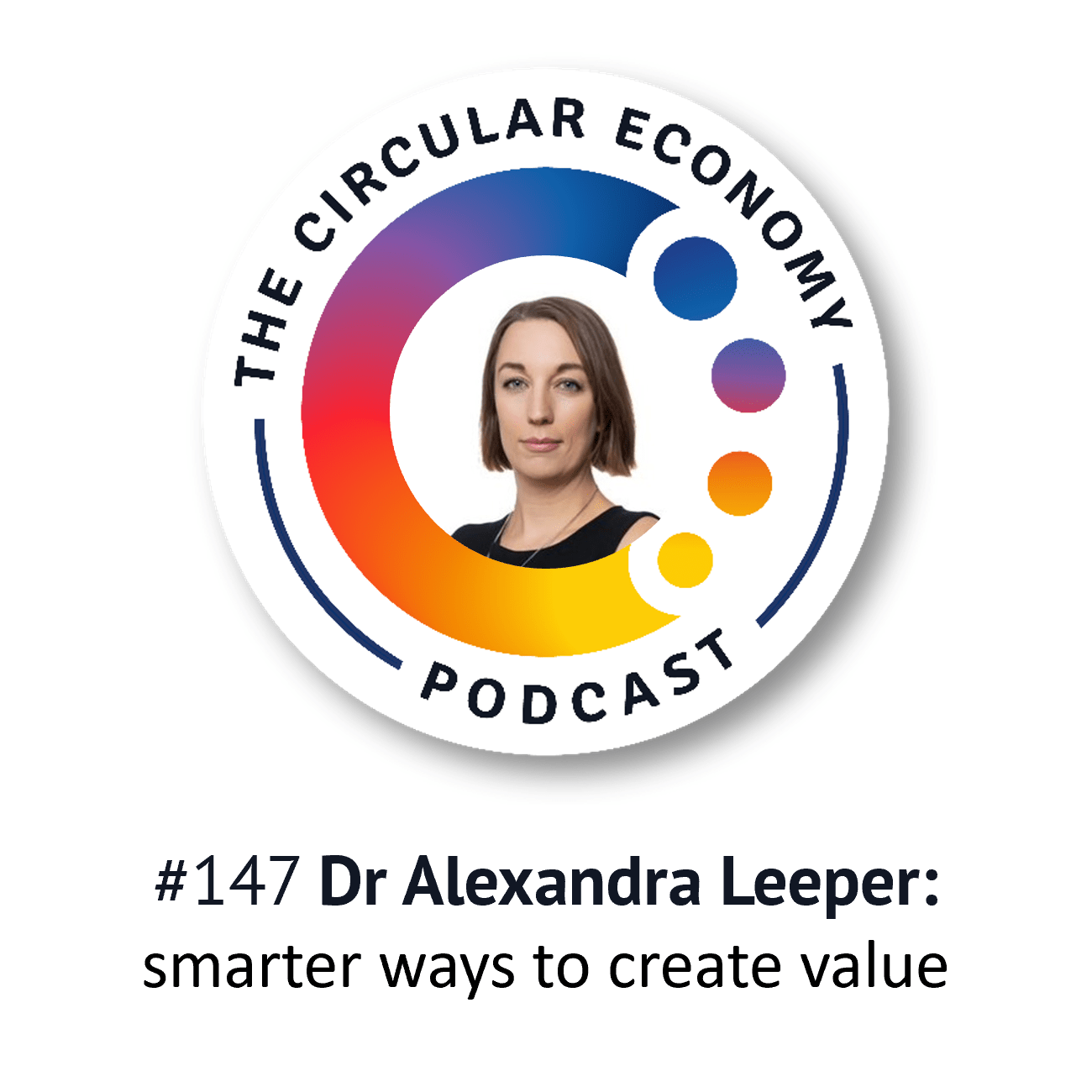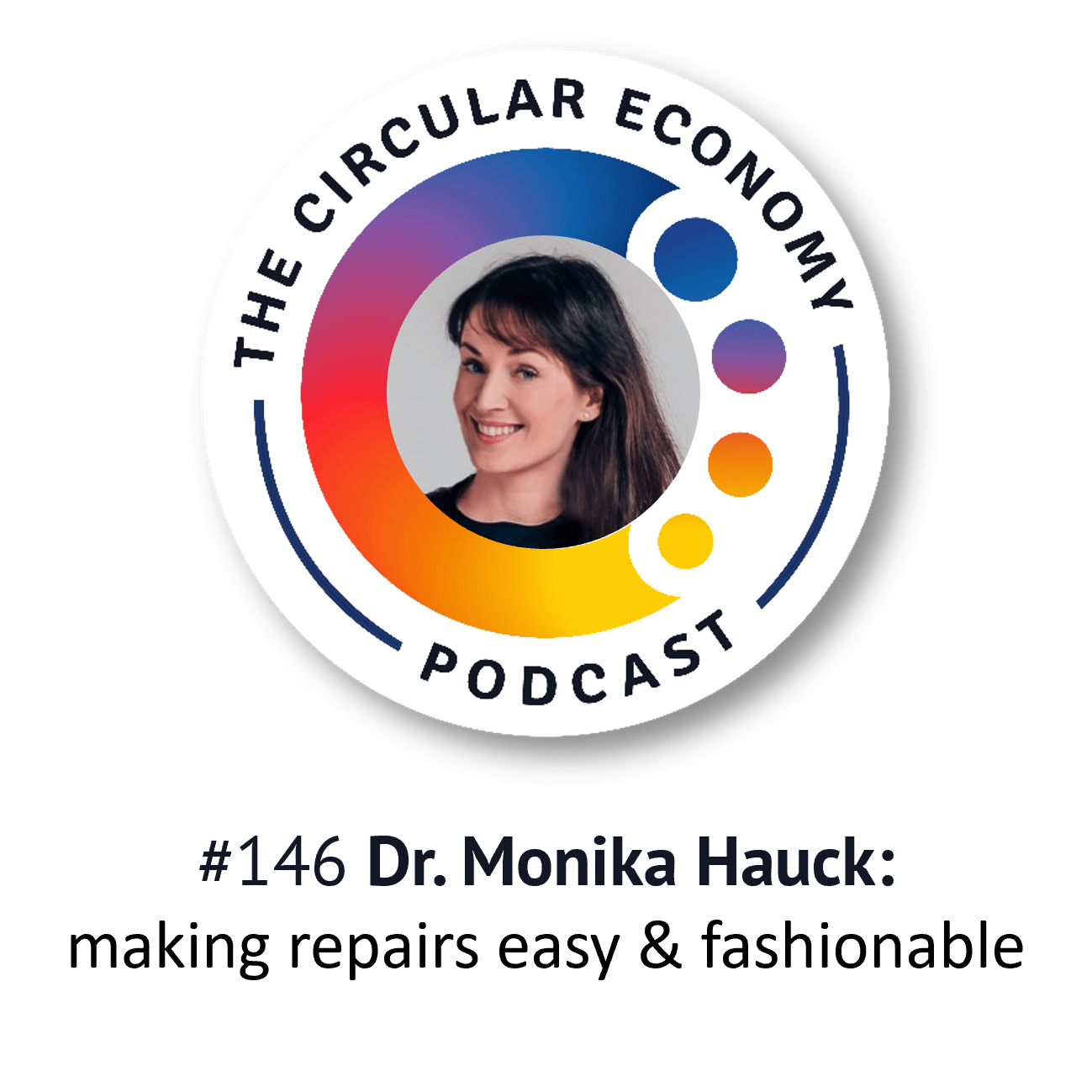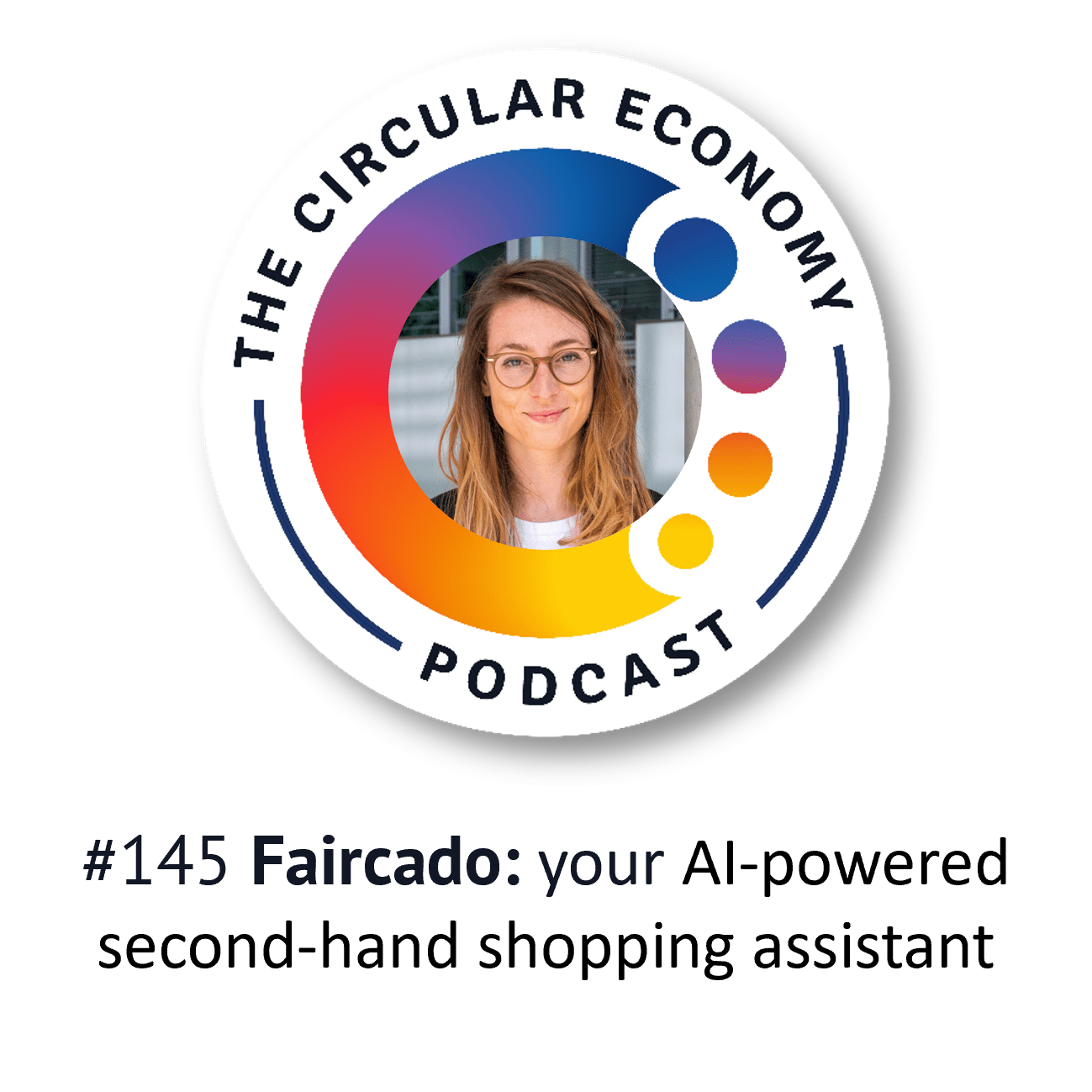Podcast: Play in new window | Download
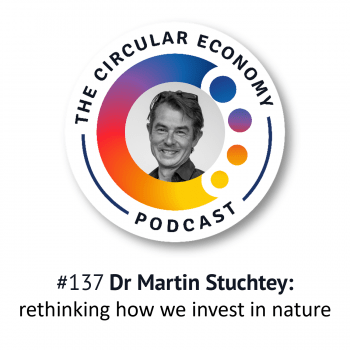
Professor Dr. Martin Stuchtey – a geologist, economist and entrepreneur – is challenging and helping to rethink industrial, farming and economic systems. He founded The Landbanking Group, a Nature Fintech aiming to bring natural capital onto our balance sheets in service of the Paris and Montreal agreements.
Dr. Martin Stuchtey is a former Senior and Managing Partner at McKinsey & Co., where he co-founded and led the global sustainability activities. He then founded systems change company SYSTEMIQ, and is also professor for industrial systems in transition at the University of Innsbruck. Martin is an investor, multiple board member and owner of an organic farm in Austria. He’s authored numerous papers, press, radio and TV publications and a book, “A Good Disruption – Redefining Growth in the 21st Century”.
I was keen to ask Martin about a chapter he co-authored in a recent book published by Factor X – The Impossibilities of the Circular Economy: separating aspirations from reality.
Then we move onto talk about The Landbanking Group, born out of Martin’s frustration with the lack of progress in pushing back against the current, extractive economy. Martin also realised that we need to rethink how we invest in nature as the fundamental building block of our future on this, our home planet.
The Landbanking Group’s ambition is to change the way we make land-use decisions worldwide. Their first-of-its-kind platform allows land stewards to earn income from accruing natural capital (such as biodiversity, carbon, soil, water). It allows companies to invest into balance-sheet grade natural capital contracts (or “Nature Equity”). The Landbanking team aims to create the hardest currency for nature by combining the latest science and accounting practices into a coherent, transparent, and compliant way to invest into natural capital – because nature is critical infrastructure – for companies, economies and societies.
International speaker, author and strategic advisor, Catherine Weetman helps people discover why circular, regenerative and fair solutions are better for people, planet – and prosperity.
Catherine’s award-winning book: A Circular Economy Handbook: How to Build a More Resilient, Competitive and Sustainable Business includes lots of practical examples and tips on getting started.
Stay in touch for free insights and updates…
Read on for more on our guest and links to the people, organisations and other resources we mention.
Don’t forget, you can subscribe to the podcast series on iTunes, Google Podcasts, PlayerFM, Spotify, TuneIn, or search for “circular economy” in your favourite podcast app. Stay in touch to get free insights and updates, direct to your inbox…
You can also use our interactive, searchable podcast index to find episodes by sector, by region or by circular strategy. Plus, there is now a regular Circular Economy Podcast newsletter, so you get the latest episode show notes and links delivered to your inbox on Sunday morning, each fortnight. The newsletter includes a link to the episode page on our website, with an audio player. You can subscribe by clicking this link to update your preferences.
Links for the episode:
Catherine’s work:
- Circular Economy Podcast on LinkedIn: linkedin.com/showcase/circular-economy-podcast/
- Circular Economy Podcast website: circulareconomypodcast.com
- Catherine Weetman on LinkedIn: https://www.linkedin.com/in/catherine-weetman-9419107/
- A Circular Economy Handbook: How to Build a More Resilient, Competitive and Sustainable Business – buy from any good bookseller, or direct from the publisher Kogan Page, which ships worldwide (free shipping to UK and US) https://www.koganpage.com/CircEcon2
- Interactive podcast index https://www.rethinkglobal.info/circular-economy-podcast-index/
- Rethink Global www.rethinkglobal.info
- Sign up to get the podcast player and shownotes for each new episode emailed to your inbox
Links for our guest:
- Martin Stuchtey on LinkedIn https://www.linkedin.com/in/martinstuchtey/
- The Landbanking Group Website | Linkedin | Nature Equity Consultation Paper
- Martin Stuchtey‘s TEDx Talk
- Article about land-banking https://www.thebanker.com/With-nature-in-dramatic-decline-land-banking-awaits-reinvention-1708692557
Books, people and organisations we mentioned
- The Impossibilities of the Circular Economy: separating aspirations from reality – open access version, with each chapter also available as a separate download – Martin Stuchtey’s chapter is #22 https://www.taylorfrancis.com/books/oa-edit/10.4324/9781003244196/impossibilities-circular-economy-harry-lehmann-christoph-hinske-victoire-de-margerie-aneta-slaveikova-nikolova?_ga=62884898.1720174582
- The Impossibilities of the Circular Economy: separating aspirations from reality – print version from Routledge https://www.routledge.com/The-Impossibilities-of-the-Circular-Economy-Separating-Aspirations-from/Lehmann-Hinske-Margerie-Nikolova/p/book/9781032154435
- A Good Disruption: Redefining Growth in the Twenty-First Century, by Martin Stuchtey, Per-Anders Enkvist and Klaus Zumwinkel https://www.amazon.com/Good-Disruption-Redefining-Twenty-First-Century/dp/1472939786
- Or watch Martin’s talk – A Good Disruption at the Disruptive Innovation Festival https://www.youtube.com/watch?v=uT66CRYkSM8&t=1s
- Ernst Ulrich von Weizsäcker https://de.wikipedia.org/wiki/Ernst_Ulrich_von_Weizs%C3%A4cker
Guest bio
Professor Dr. Martin R. Stuchtey
Prof. Martin R. Stuchtey is a geologist and economist, and the founder of The Landbanking Group. This Nature Fintech is in service of the Paris and the Montreal agreement and aiming to bring natural capital onto our balance sheets. He is a former Senior and Managing Partner of McKinsey & Co. where he co-founded and led the global sustainability activities. Furthermore, Martin is founder of the systems change company SYSTEMIQ, professor for industrial systems in transition at the University of Innsbruck, investor, multiple board member and owner of an organic farm in Austria. He is the author of numerous papers, press, radio and TV publications and the book “A Good Disruption – Redefining Growth in the 21st Century”.
About The Landbanking Group
The Landbanking Group is a Munich-based Nature-Fintech Company with the ambition to change the way we make land-use decisions worldwide. Their first-in-kind platform “Landler.io” allows land stewards to earn income from accruing natural capital (biodiversity, carbon, soil, water), and companies to invest into balance-sheet grade natural capital contracts (“Nature Equity”). The 45-people Landbanking team strives to create the hardest currency for nature by combining latest science and accounting practices into a coherent, transparent, and compliant way to invest into natural capital because nature is critical infrastructure – for companies, economies and societies.
Playlist: getting started with the circular economy…
Want to know more about the what the circular economy really is, and how it can help your business? Here’s a playlist to help you get to grips with the concept, how it creates value, and the common myths (spoiler alert – it’s much more than recycling!)
- #1 What is the circular economy: A quick intro to explain what the circular economy is and why it’s important. We explore how it helps create better products and services, and at the same time helps to make a better world. I break it down into my 5 circular economy components, helping you think about each part of your business.
- #2 The linear economy and your risk checklist: We dig a bit deeper into the way we do business now, the linear economy, and why that’s creating problems for business, society and our living planet. Also, we’ll look at the risks that emerge from those big-picture issues, and how they might affect your organisation.
- #90 Does circular mean it’s sustainable? Catherine Weetman is worried that companies are using circular economy solutions to grow their business (and their footprints).
- #101 Circular is better for people, planet and profit! How three simple strategies can help you get started with circular and regenerative solutions that are better for people, planet and profit.
- #120 Priorities are changing: people find life is better when we care for and share things – circular economy strategies make that better for business, too.
And here’s Catherine’s guide: What is the circular economy?
Want to dig deeper?
Why not buy Catherine’s award-winning book, A Circular Economy Handbook: How to Build a More Resilient, Competitive and Sustainable Business. This comprehensive guide uses a bottom-up, practical approach, and includes hundreds of real examples from around the world, to help you really ‘get’ the circular economy. Even better, you’ll be inspired with ideas to make your own business more competitive, resilient and sustainable.
Please let us know what you think of the podcast – and we’d love it if you could leave us a review on iTunes, or wherever you find your podcasts. Or send us an email…
Please let us know what you think of the podcast – and we’d love it if you could leave us a review on iTunes, or wherever you find your podcasts. Or send us an email…
Podcast music
Thanks to Belinda O’Hooley and Heidi Tidow, otherwise known as the brilliant, inventive and generous folk duo, O’Hooley & Tidow for allowing me to use the instrumentals from the live version of Summat’s Brewin’ as music for the podcast. You can find the whole track (inspired by the Copper Family song “Oh Good Ale”) on their album, also called Summat’s Brewin’. Or, follow them on Twitter.
